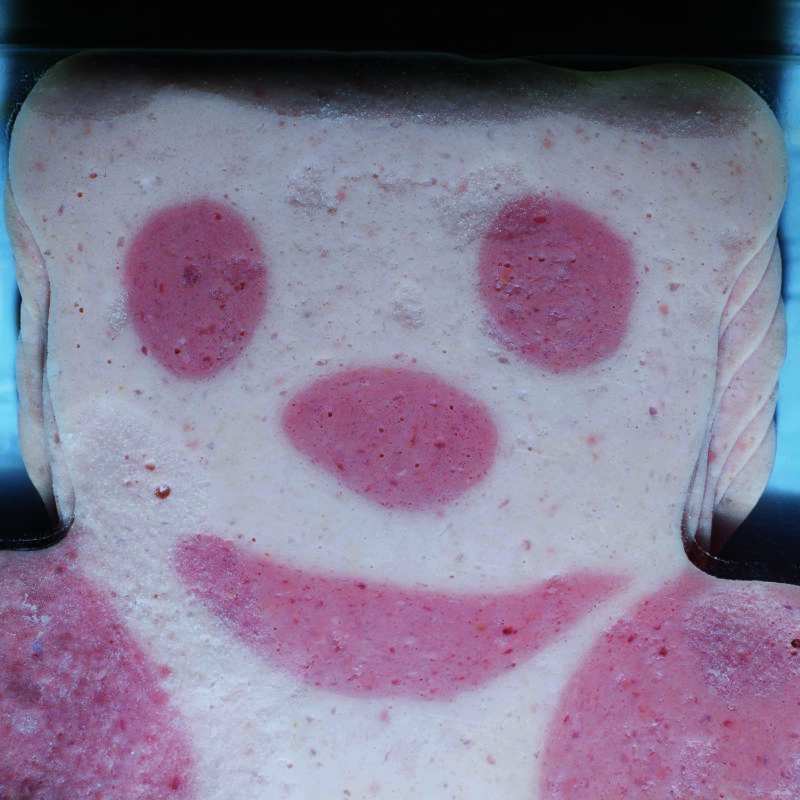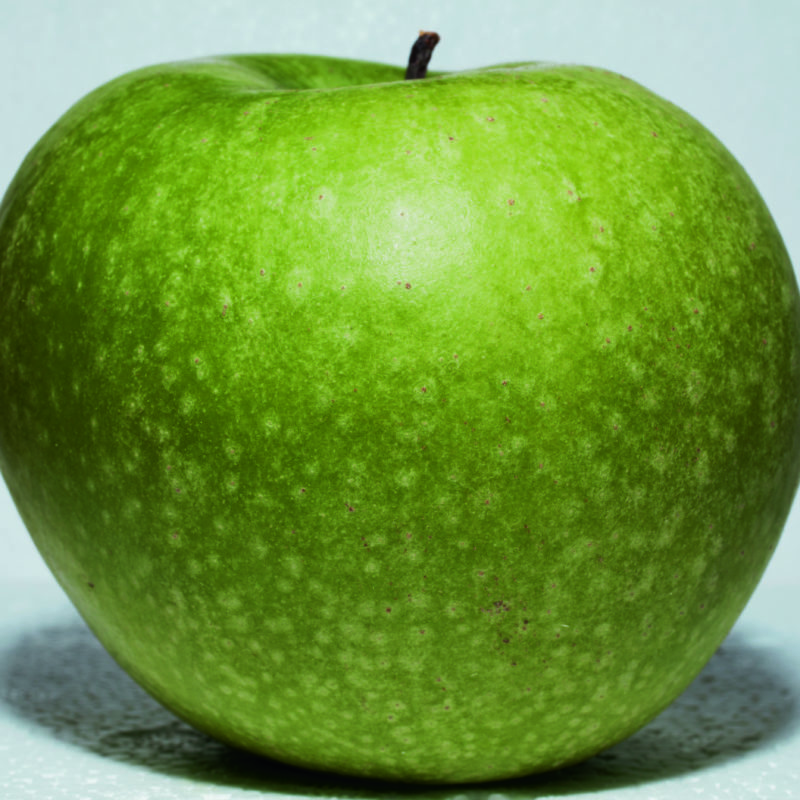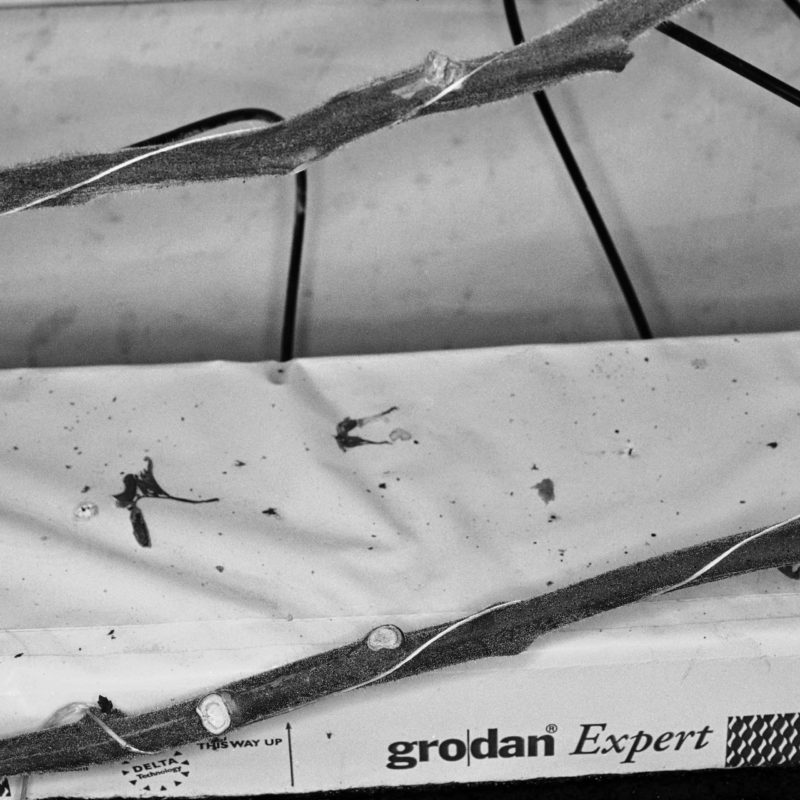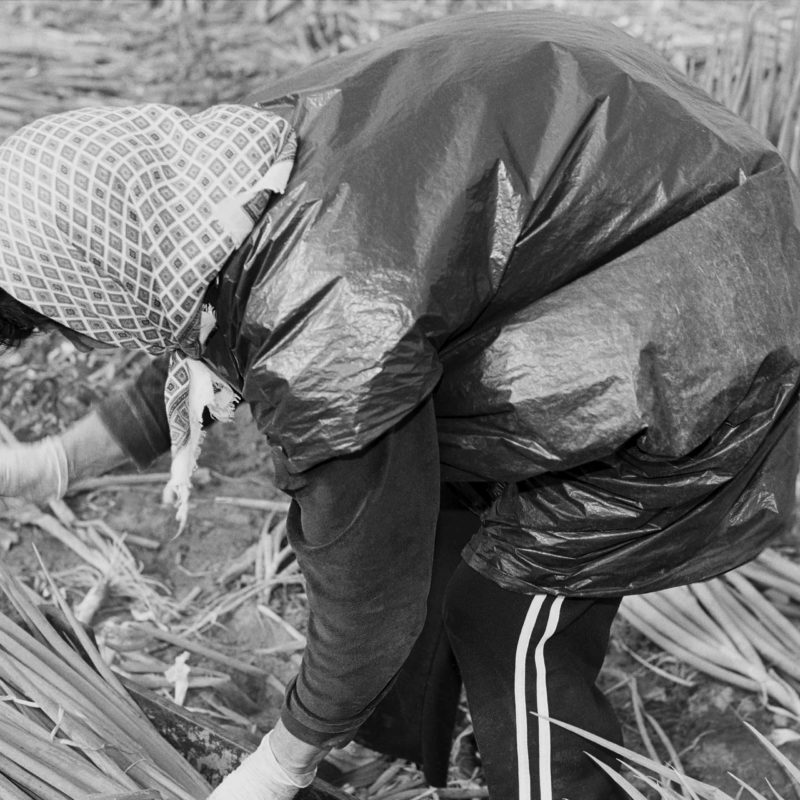Michael Schmidt, LEBENSMITTEL, 2012
The LEBENSMITTEL [Foodstuffs] photobook and exhibition project by the German photographer Michael Schmidt (born in Berlin, in 1945) comprises 177 photographs, taken between 2006 and 2010, on twenty-six trips around Germany, Norway, the Netherlands, Austria, Italy, and Spain. The photographs were shot at feedlots and slaughterhouses, fish farms and commercial greenhouses, fruit farms and vegetable plantations, pasta factories and cheese dairies, as well as at various plants processing meat, potatoes, and insects.
Schmidt’s portrayal of modern-day food production is not explicitly damning; it poses more questions than it answers. In many photographs, a granular focus on detail makes it difficult to identify the type of food being depicted. In the process, the series demonstrates the extent to which food production has become standardised, mechanised, and industrialised while churning out fodder for the masses. In the past, consumers knew where their food came from and how it was made. Today, food production is carried out covertly, behind closed doors, and governed by the dictates of efficiency. There is little scope for individuality.
With LEBENSMITTEL, Schmidt for the first time included colour images alongside his distinctive black-and-white photography in order to convey the food industry’s striving for aesthetic perfection and the materiality of food packaging. In 2014, shortly before his death, Schmidt won the prestigious Prix Pictet award for the project.
Michael Schmidt (1945–2014) was one of the foremost German photographers of the twentieth century. Born in Berlin in the immediate aftermath of World War II, the self-taught Schmidt chronicled the city and its denizens from the 1960s to mid-1980s, later shifting to a broader focus on the rest of Germany after its reunification. Series such as Berlin-Wedding demonstrate his approach as an ambulatory documentarian recording streetscapes with a typologist’s attention to detail. In the 1980s and 90s, WAFFENRUHE [Ceasefire] and EIN-HEIT [U-NI-TY] picked up on deep-seated divisions in German society that would persist even after the Wall came down.
In 1976, Schmidt founded the Werkstatt für Photographie [Workshop for Photography], which played a pioneering role in the development of the medium as a self-sustaining artistic practice, with multiple options for dissemination from photography galleries to the photobook. Schmidt remained active until the end of his life. Lebensmittel [Foodstuffs], a survey of the global food supply chain, was awarded the Prix Pictet just months before he died. His legacy is overseen by the Foundation for Photography and Media Art with the Michael Schmidt Archive.
Thomas Weski Michael Schmidt career overview
Place:
MOCAK Museum of Contemporary Art in Krakow Beta Gallery
ul. Lipowa 4
Opening:
25.4.2019, 6 pm
Exhibition open:
26.4–16.6.2019
Tue-Sun 11 a.m.–7 p.m.






